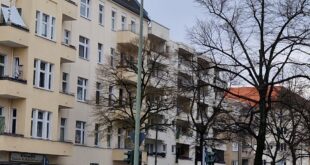The Federal Parliament has passed two laws to regulate immigration from non-EU countries into Germany. One of the laws provides more opportunities for people to come to Germany to work and receive training while another amends the regulations affecting asylum-seekers.
In a major step to modernise and liberalise its immigration system, the German parliament (Bundestag) passed into law a bill submitted by the Chancellor Angela Merkel-led coalition government on Friday, 7 June. The Foreigners Employment Promotion Act (Ausländerbeschäftigungsförderungsgesetz) facilitates the access of skilled foreign workers from non-EU countries to the German job market.
The previously applicable restriction of such labour immigration to the so-called shortage occupations has now been abrogated. In addition, the employer no longer has to prove that they have not found a German or an EU citizen who could do the job.
The law also makes it easier for immigrants with a vocational qualification to move to Germany. Up until now, the German system had mainly favoured those with academic qualifications.
Additionally, the law also allows some categories of people, under certain circumstances, to come to Germany to seek vocational training.
Under the same new law, certain asylum-seekers whose applications have been rejected can obtain an “employment toleration” (Beschäftigungsduldung), if they have begun a state-recognized vocational training course or work for at least 20 hours a week, learned German, and have been able to support themselves for 18 months.
So that this regulation is not understood as an invitation for unskilled migrants, it remains limited to old cases. Only those who entered before 1 August 2018 can receive “employment toleration”.
The second bill passed into law on Friday provides for sanctions such as a work ban for asylum-seekers who disguise their identity, by hiding their true country of origin. Henceforth, rejected asylum-seekers whose deportation has been ordered could be held in detention centres. In addition, the police will now have the right to enter apartments, where deportation candidates are suspected to be staying.
Refugees will stay in the central facilities “Ankerzentren” (anchor centres) for up to 18 months instead of the previous six. For families and children it stays at six months.
Foreigners, who are obliged to leave the country and who, in the opinion of the authorities, are themselves responsible for the fact that they have no valid travel papers, will receive a paper “tolerance for persons with unclear identity” (Duldung für Personen mitungeklärter Identität). They will not be allowed to work and are required to live in a certain place (Wohnsitzauflage), which they cannot leave without official permission.
The laws will come into effect on 1 January 2020.
Femi Awoniyi
 THE AFRICAN COURIER. Reporting Africa and its Diaspora! The African Courier is an international magazine published in Germany to report on Africa and the Diaspora African experience. The first issue of the bimonthly magazine appeared on the newsstands on 15 February 1998. The African Courier is a communication forum for European-African political, economic and cultural exchanges, and a voice for Africa in Europe.
THE AFRICAN COURIER. Reporting Africa and its Diaspora! The African Courier is an international magazine published in Germany to report on Africa and the Diaspora African experience. The first issue of the bimonthly magazine appeared on the newsstands on 15 February 1998. The African Courier is a communication forum for European-African political, economic and cultural exchanges, and a voice for Africa in Europe.





















